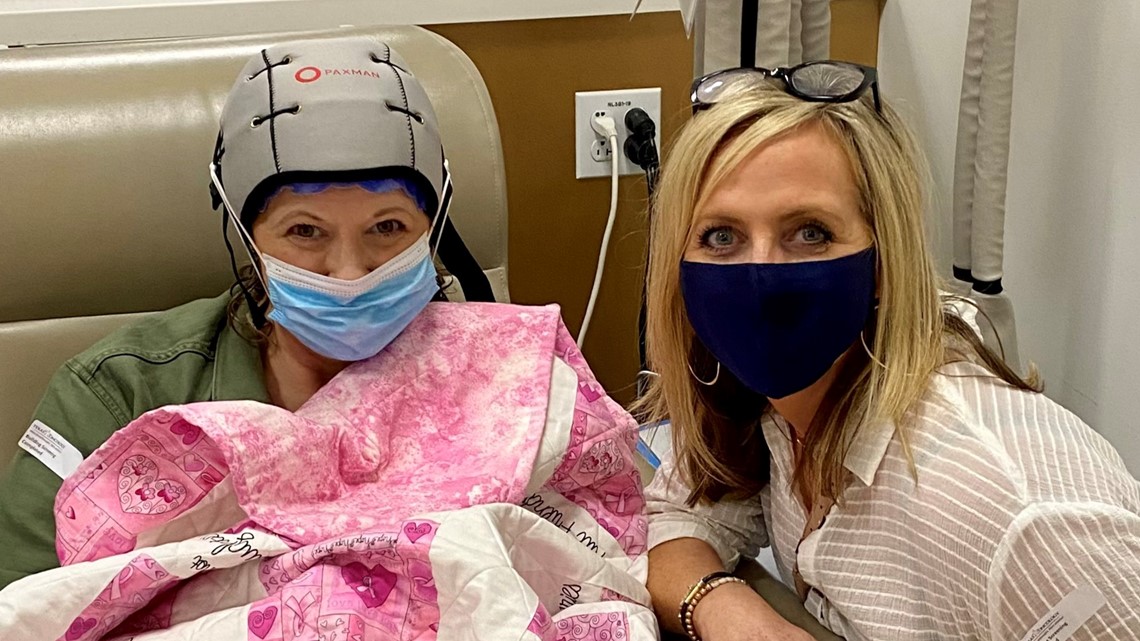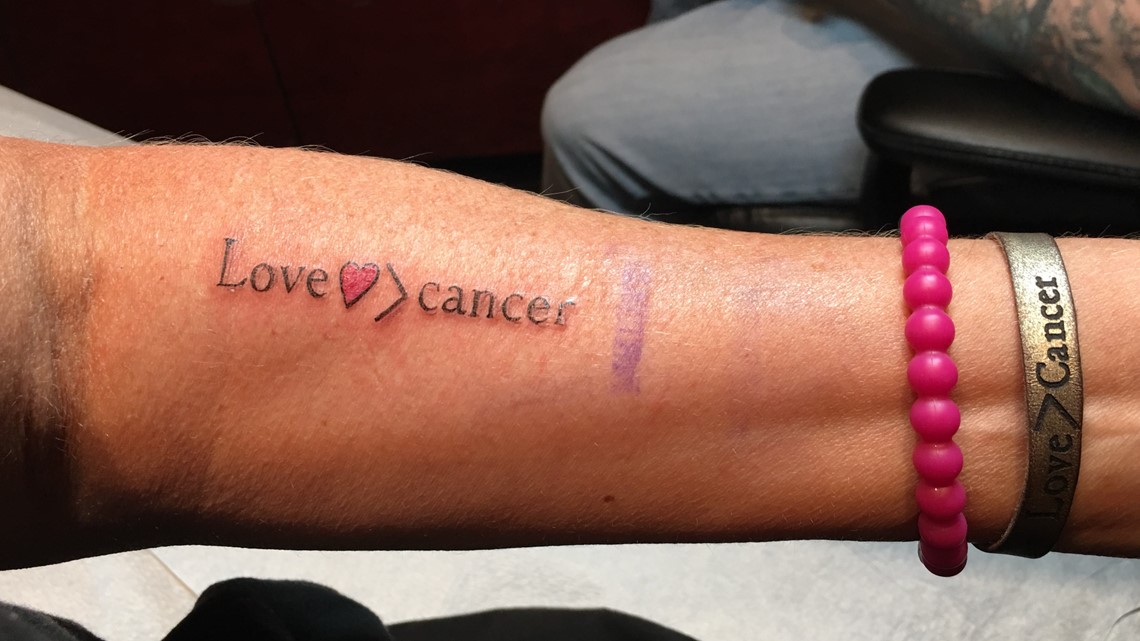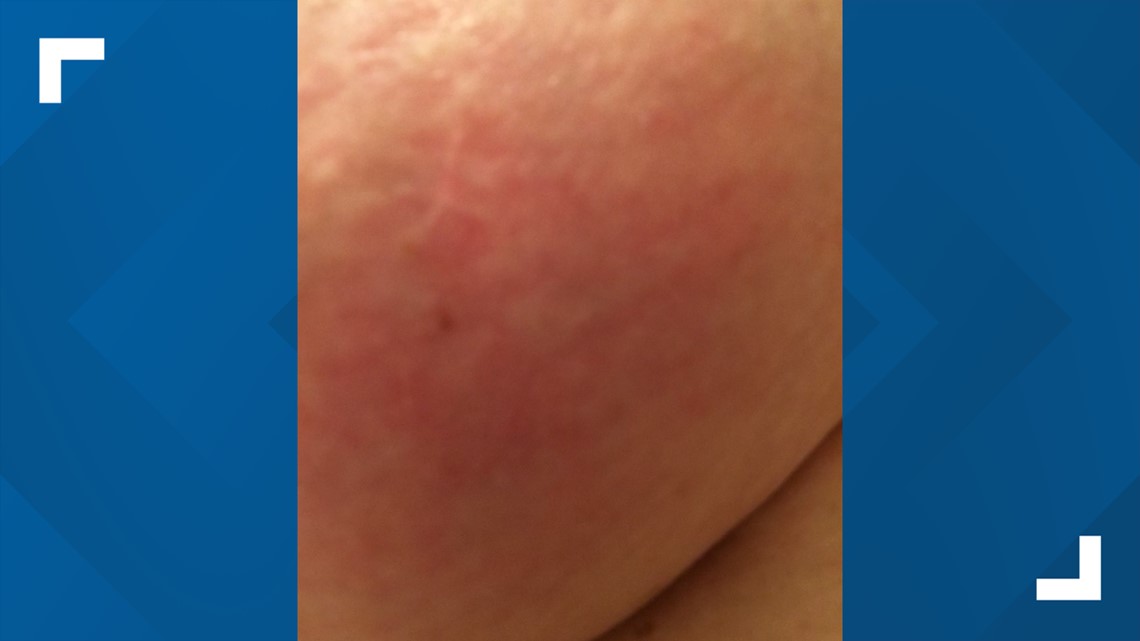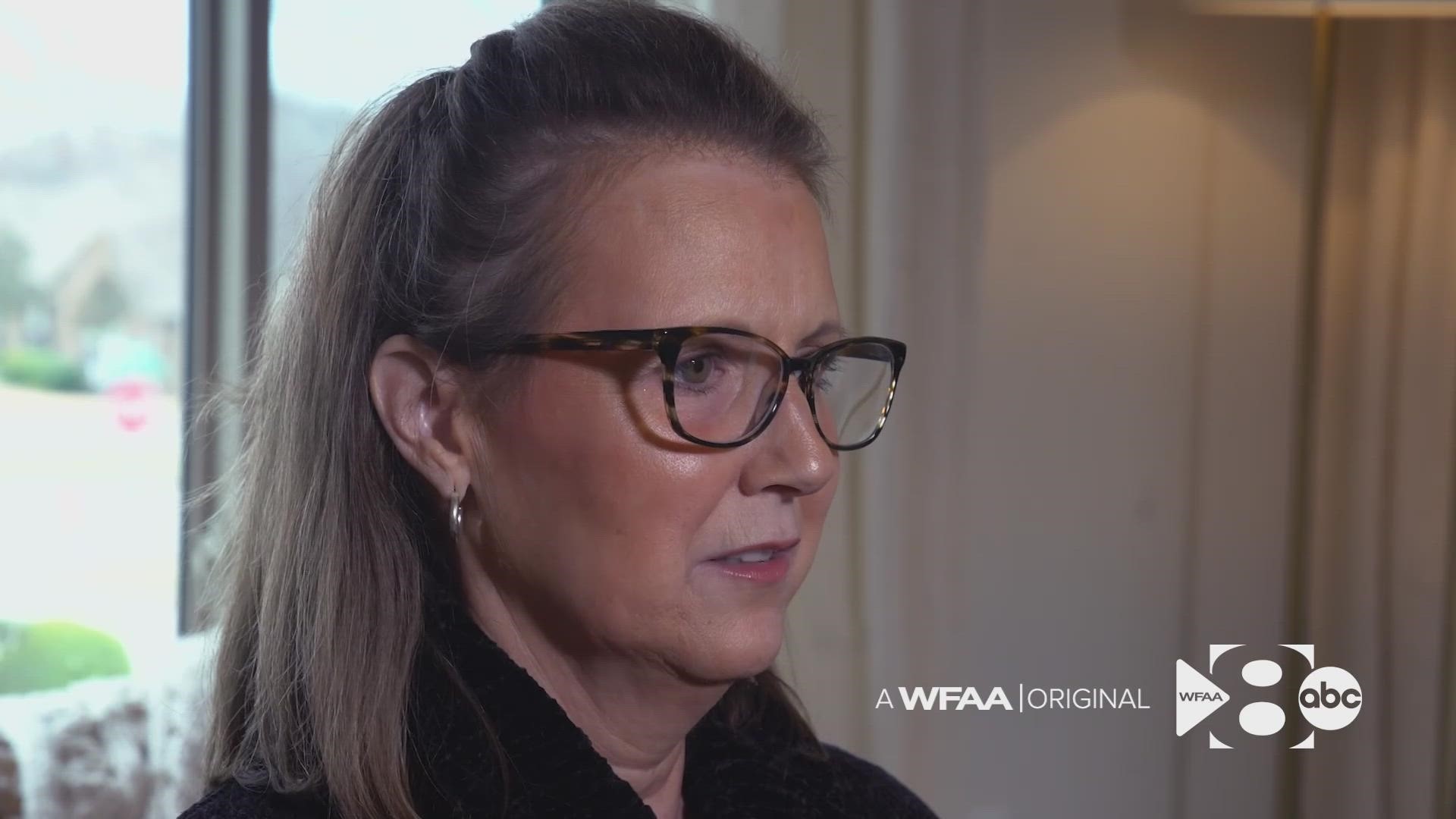DALLAS — Editor’s note: WFAA reporter Jason Whitely has covered Jennifer Cordts’ story since 2017, shortly after her diagnosis of Inflammatory Breast Cancer. Almost six years since that first story on her rare diagnosis, and far longer than doctors originally thought she could survive, Whitely reconnected with Cordts to discuss her life with the diagnosis and why she's so adamant about helping doctors learn more about it. This is her story, as told to Jason Whitely.
I’m Jennifer Cordts. I was diagnosed with Inflammatory Breast Cancer in November 2016.
Oddly enough, when you Google my name, one of the most common questions is, "Is Jennifer Cordts still alive?"
For a lack of a better way of saying it, my body’s been quite mangled. I’ve lost a lot of what I felt made me a woman in my earlier years.


Right out of the gate when I was diagnosed, I don’t know the word to put on it, I was terrified, confused, and maybe angry and depressed.
It looked really grim because my cancer had metastasized to my liver and lymph nodes which is characteristic of Inflammatory Breast Cancer – my liver, as well as my bones and they estimated that I had three to six months [to live].
I remember one feeling in particular. And this hasn’t changed for me since the day I was diagnosed. It’s not about what’s in front of me that scares me. It’s about what I would leave behind. Saying goodbye is unfathomable to me. So, I put it in that little box at the back of my mind and I don’t think about it.
I guess I decided early on, along with my loved ones that I wasn’t going to focus on the negative in my journey. I was going to only focus on the positive, the small wins along the way.
My sister said to me in the very beginning, she said we’re going to get through this because love beats everything. We kind of came up with this family mantra that ‘love is greater than cancer’. In fact, my sister got it tattooed on her arm. I probably would have too if I felt a tattoo was safe at the time.


I don’t cry much about cancer anymore. I just don’t. But I still cry. I still lose sleep. I still get a lump in my throat when I think about those little beauties that I gave birth to ever having a day without me. Clearly, that stops me in my tracks. It stops me in my tracks that my very best friend whom I married and who has sacrificed so much for me might have to raise them without me. That chokes me up obviously.
I don’t know that I even knew what my end goal was [in my 2017 WFAA interview] other than I just wanted to shout it from the rooftops so somebody else was heard because I felt like no one heard me for 11 months while I was seeking a diagnosis. I felt silenced. Ignored. And I just didn’t want anyone else to feel like that.
I haven’t shut up since that day. I have told every single person that I've run into that I have Inflammatory Breast Cancer because I want to educate them. I didn’t know what it was before I was diagnosed with it. I didn’t know what it was until I googled it. I don’t know if my doctor knew what it was.
There are just so many more medical advances, even since I was diagnosed, that I just really feel like there’s a way to live with this type of cancer and it’s not a death sentence.


I’m doing really well all things considered. I’ve come a long way since I was first diagnosed.
I had a former nurse say to me recently – it was shocking to hear. She said you’re the only one left. That kind of scared me for a second. Then I was like gosh don’t say that to me. But it’s reality. I don’t know if that’s the case but if that is the case, even more reason to keep talking.
Over time I learned to live with a terminal illness. The way I looked at it in the beginning, I was dying from cancer. Now I look at it as if I’m living with cancer.
Right now, they have told me I could look forward to maybe 10 years but of course, I believe in miracles and I’m hoping for a lot longer to be with my family.
WFAA produced a question-and-answer video in which Jennifer Cordts asks her oncologist to explain Inflammatory Breast Cancer. Cordts hopes the conversation helps educate women and assist doctors on exactly what to look for since this cancer does not begin with a lump or a tumor and goes undetected by mammograms. The only indication is when the skin of the breast changes slightly in color and might feel coarse – like an orange peel. Many doctors often mistake it for an infection. A biopsy is the only way to diagnose it.

